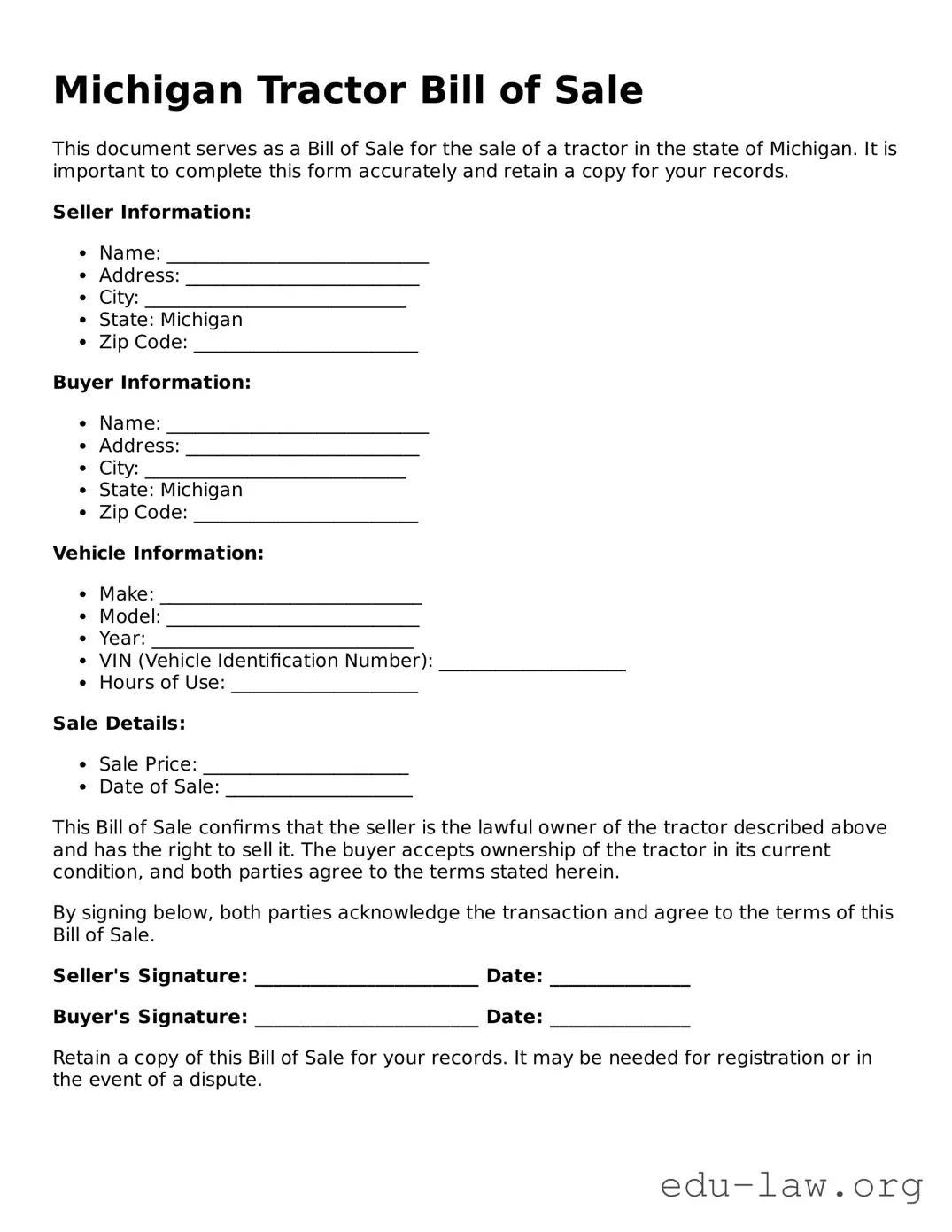What is the Michigan Tractor Bill of Sale form?
The Michigan Tractor Bill of Sale form is a legal document used to record the sale and purchase of a tractor in the state of Michigan. It serves as proof of the transaction between the buyer and the seller. This document is particularly important for establishing ownership, especially if the tractor is registered or titled. By filling out this form, both parties can keep a clear record of the details surrounding the sale.
What information is included in the Tractor Bill of Sale?
This form typically includes essential information such as the names and addresses of both the seller and the buyer, a detailed description of the tractor (including make, model, year, and VIN), the sale price, and the date of the transaction. Additionally, it may contain spaces for signatures from both parties, which help confirm the agreement. It’s crucial to ensure that the details are accurate to avoid future disputes.
Do I need a notary for the Tractor Bill of Sale in Michigan?
No, a notary public is not required for the Tractor Bill of Sale to be valid in Michigan. However, having the document notarized can provide an extra layer of security and authenticity. It can assure both the buyer and seller that the signatures are legitimate, thus reducing the potential for later disputes regarding the terms of sale.
Is the Tractor Bill of Sale required for registration?
The Tractor Bill of Sale is not a mandatory document for registration in Michigan, but it is highly recommended. When registering a tractor, proving ownership is essential, and this bill of sale can help with that. While you may be able to register a tractor using other documents, having a bill of sale makes the process smoother and provides additional support for your ownership claim.
Can I create my own Bill of Sale for a tractor?
Yes, you can create your own Bill of Sale for a tractor in Michigan. However, it is important to ensure that all necessary information is included in the document. Stick to the essential details: both parties' names, the tractor's description, the sale price, and signatures. If you choose to draft your own, make sure it complies with any relevant local requirements to ensure its validity.
What should I do if I lose my Bill of Sale?
If you lose your Bill of Sale, it’s advisable to try and obtain a replacement from the other party if possible. Alternatively, you may create a new bill of sale, documenting the same details with both parties agreeing to the same terms. Keep in mind that having a copy of the document is crucial for any future transactions and for proving ownership, particularly during registration or when selling again.
